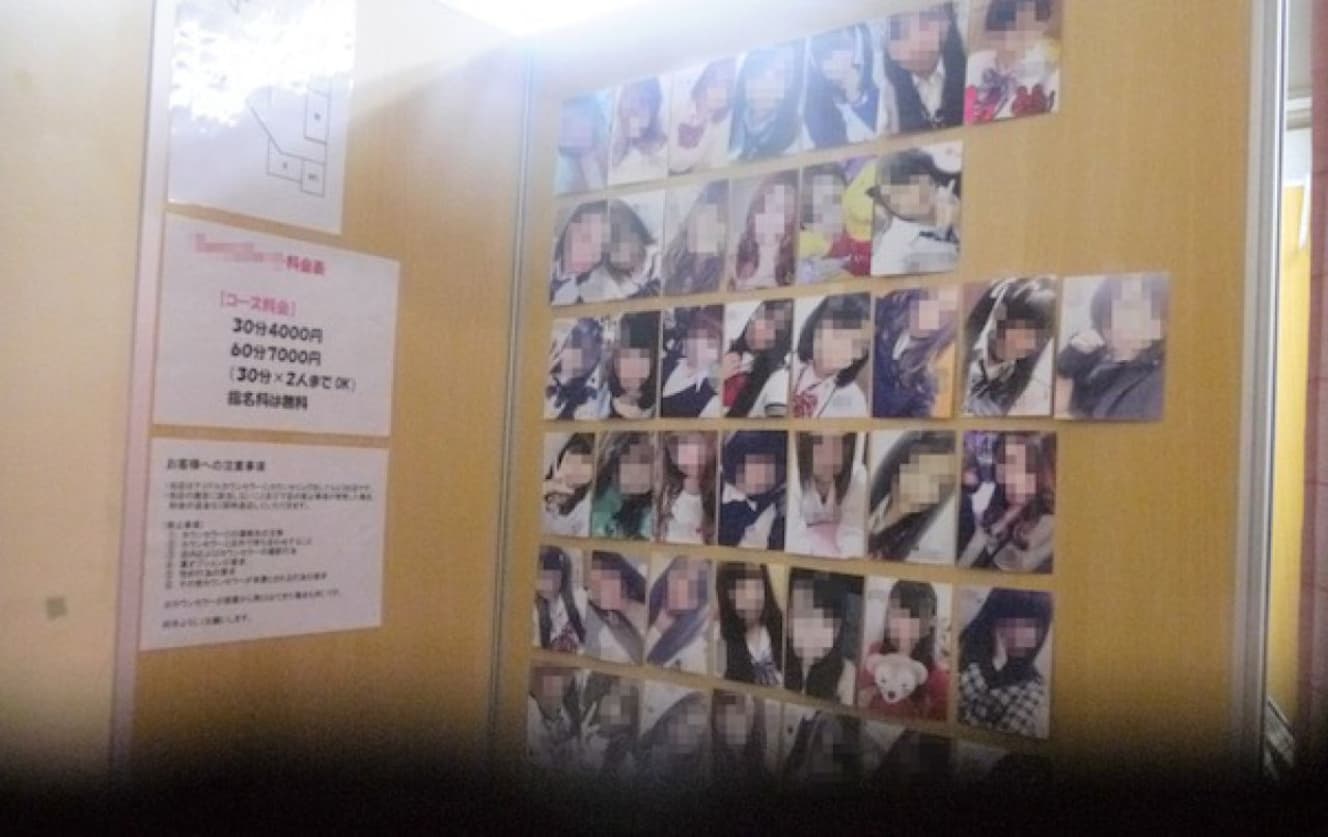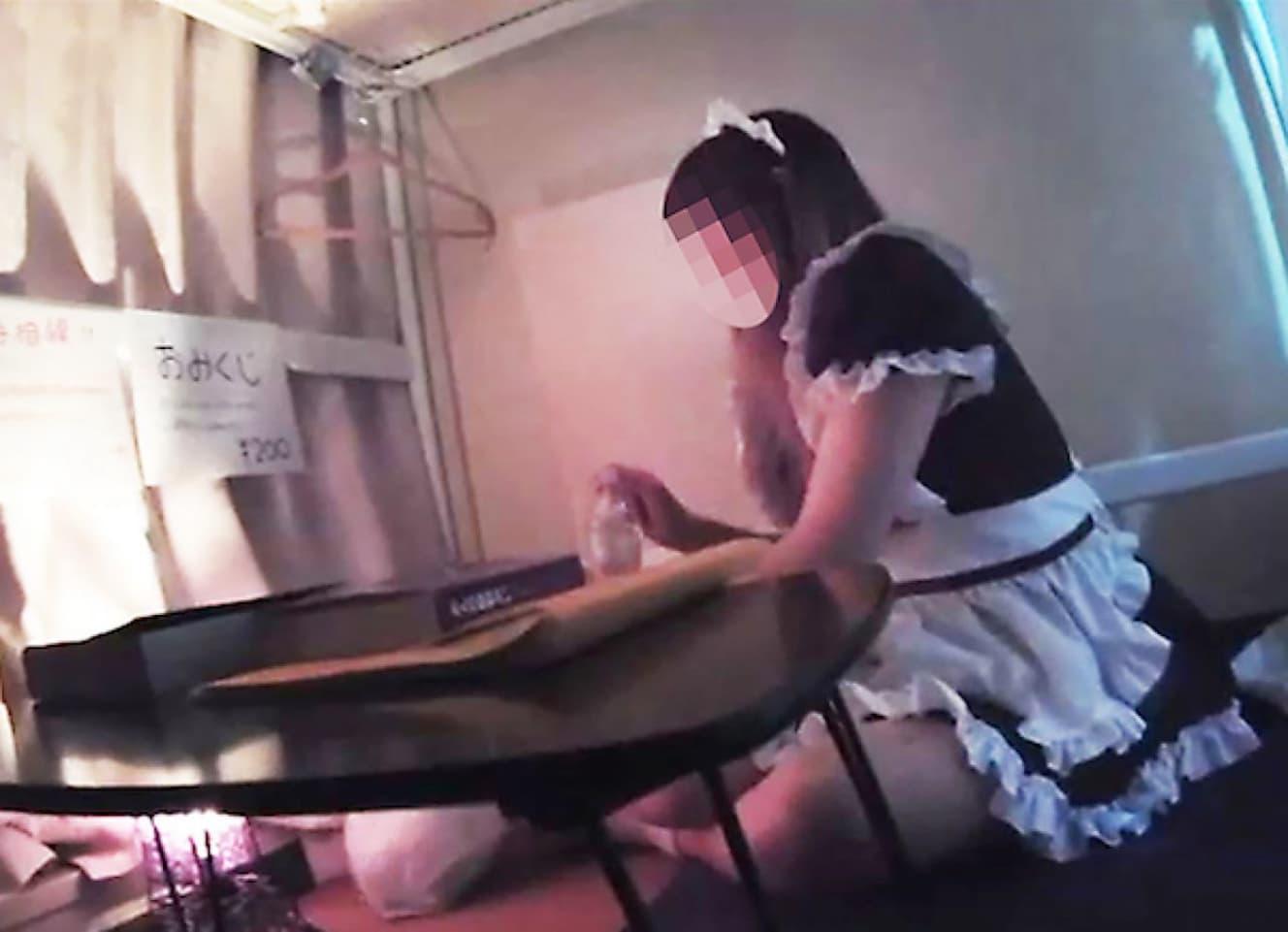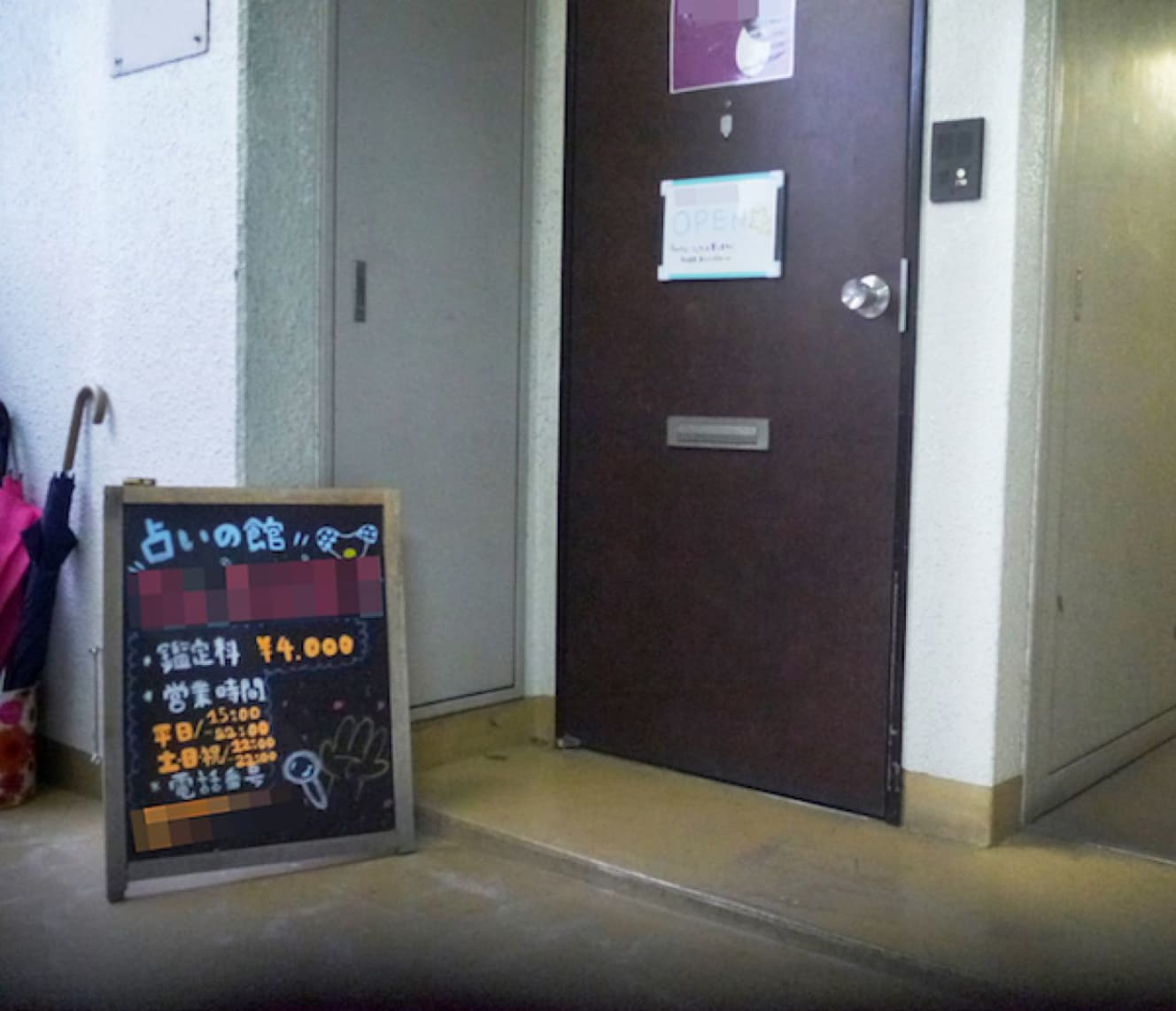The birth of the sex industry, the JK business] “The end of the JK business,” which was destroyed by an ordinance in 2005, “making over 18-year-olds perform sex acts and making a fortune.

The sex industry has been shaken up by a string of soap operators being targeted by scout groups, including the arrest in January of two soapland operators in Ishikawa and Tokyo, and the proliferation of extreme services at men’s esthetic clinics, which are not sex establishments. How did the various types of sex industry come into being in the first place? Nonfiction writer Mizuho Takagi explores the “beginnings” of various types of adult entertainment in “Reporto: The Birth of Adult Entertainment”. This time, she talks about the history of the “JK business” that took the world by storm in the ’10s (Part 2).
The JK business was virtually “destroyed” by the ordinance.
It has been about a year since Fujii’s JK tour store “B” was busted. C,” a dating cafe in Shinjuku’s Kabukicho district, Tokyo, was busted for violating the Entertainment Establishments Control Law. It was June 2004. The cafe was called “JK Commu,” and offered a service that allowed customers to talk with high school girls indoors, and sexual services similar to those offered by the sex industry were rampant, with blow jobs and sexual intercourse called “urai-op” (裏オプ).
We interviewed a man who used to run a JK commune at the same time. Looking back on those days, the man describes the inner workings of JK Comu.
The form of a commune store is simple: a reception desk, a waiting room for the girls, and a semi-private talk room for the customers. That is why it is possible to open a shop with an unbelievable amount of funds. The total cost of the interior design, acquisition of the store, and advertising was less than 3 million yen, which was surprisingly inexpensive.
Ordinance “Destroyed”…but Teens Released into the Wild
The man’s store had just under 100 girls enrolled at the time. They were all current high school girls between the ages of 15 and 18. Business hours were from 2:00 to 10:00 p.m., with six rooms. The store received a gross profit of 3 to 4 million yen per month from the 4,000 yen per half hour room charge, all of which went to the store itself. Since the shop continued to operate for about a year until “C” was busted, it seems that the company made as much as 50 million yen a month.
In July 2005, the month after “C” was busted, the Tokyo Metropolitan Government followed Aichi Prefecture in enacting an “Ordinance on Regulation of Businesses Providing Services to Specified Persons of the Opposite Sex,” which prohibits the provision of services such as massages, conversation, and game playing to high school girls.
A person involved in the investigation said, “Other countries have pointed out that the JK business is a breeding ground for prostitution, and as a developed country, we have no choice but to take action. Our basic policy is to keep out those under the age of 18. Also, each municipality has its own ordinance regulating high school students who are 18 years old, so until now there has been a loophole in the law. The ordinance is meant to comprehensively regulate businesses using female high school students. The ordinances came into effect in each prefecture in turn.
This means that the JK business has been virtually destroyed. But if, as Fujii said, the idea is “gray but not black,” will new loopholes be found? Not long after the ordinance’s implementation, JK business will survive as a sex industry.
The JK business is now a kind of “deli-help” service that offers sex with a real number. The owners of these businesses are registered as “non-storefront sex industry businesses,” and they make a lot of money by having girls over the age of 18 perform sex acts, while the girls exchange their bodies for money.
There is a great concern that the practice of “deli-help,” which is now limited to only those 18 years of age or older after girls are barred, has in fact normalized the practice, because the problem is not sexual service but rather age. In addition, it is hard to overlook the fact that the new ordinance is vague as to what kind of situation it is intended to address. After the ordinance came into effect, teens were not allowed to work at JK business establishments, which had been converted into deli-help services, but were instead released into the wild.
Shinjuku Kabukicho, Tokyo–These are the “Tohyoko Kids” who hang out in the area around the TOHO Building (i.e., the former Koma Theater), which is famous for the Godzilla Haribo in the center of the town.’ They have been gathering here since around 1918 in search of a place to stay. Eventually, they decided to exchange their bodies for money and took to the streets. Perhaps it was inevitable that a new stage for prostitution was born in this way.
Why did the JK business heat up so much?
If you look back to the heyday of the JK business, you will again be surprised at how heated it has become.
On January 27, 2001, the Juvenile Training Division of the Tokyo Metropolitan Police Department raided a total of 17 “JK Refre” massage parlors in Akihabara and Ikebukuro, Tokyo, on suspicion of violating the Labor Standards Law (employment in dangerous and harmful work) by allowing high school girls under the age of 18 to give private room massages. This was the first time that JK Reflex massage parlors were raided in Japan. Eight stores in Akihabara, four in Ikebukuro, three in Shinjuku, and one each in Shibuya and Kichijoji were searched, and the Metropolitan Police Department took into custody more than 100 women working there, 76 of whom were under the age of 18.
As a result of this roundup, on the 7th of the following month, the department exposed the managers and proprietors of four JK Reflex massage parlors for violating the Labor Standards Law (employment in dangerous and harmful work) by allowing high school girls under the age of 18 to give private room massages to them. The manager of “D” in Akihabara, Tokyo, who was arrested, stated, “I decided to do it because other stores were doing well.
Although there were only about a dozen or so stores around 1999, the number of stores has increased rapidly since then. Around the time of the roundup in 2001, the number of stores had swelled to about 100 in Tokyo, mainly in Akihabara, and customers were flooding in.
Why did such a phenomenon occur? The reason was not only the simple massages given by real high school girls, but also the optional services such as hugging and sleeping together.
One owner who used to run a reflexology parlor in Akihabara said, “The girls were shaking hands with idol groups.
Taking a cue from the handshaking sessions of idol groups, I thought that touching minors could be good for business, so I introduced hugging and piggybacking options.”
From “mere contact” to “backdoor op.”
He is not alone. Fujii, mentioned above, also confided that he was stimulated by the idol boom of the time.
At concerts, they would make the girls turn around in their short school uniforms and show their panties as much as they could. It seemed as if the audience came to see them. Of course, they were showing their panties, but these accidental panties gave me a hint for my business of showing the ecology of high school girls through magic mirrors.
The JK business, which was inspired by the idol boom, has greatly amplified since 1999. The trend of differentiation from other stores also led to the popularity of optional services.
However, as noted in the previous article, the services offered by the JK business from 2012 onward were no longer “mere touching” such as hugs and piggy-back rides, but rather “backdoor sexual services” in which teens perform sexual services. The JK business became even more radical, as those who were willing to pay a large sum of money were able to negotiate with girls privately and even get hand jobs or perform on them.
At that time, the majority of the girls were “bunga,” who were chasing after visual-kei bands, and “janiota,” who were chasing after celebrities from the former Johnny’s office. A scout explained that the JK business had sprung up because some of the hosts and scouts had a strong affinity with bungyas and janiotas, and “they wanted to make money using bungyas and janiotas, so they multiplied them.
They were supposedly just imitating idol groups, but in fact, idols were working there. The “Free Rest Area for High School Girls” in the famous Nagoya Chisun Mansion adult entertainment building.
In the spring of 2001, I entered the store for the first time. A man who looked like the manager showed me a piece of paper that read, “Observation with high school girls / 3,500 yen for 30 minutes,” “Daily handshake with JK members / 200 yen per person per minute,” and “High school girls’ reflexology / 3,600 yen for 30 minutes.
The system is true to its name: the girls crowd into a 6-tatami-mat room, where you “observe” them without a magic mirror, select them for a “handshake session” of touching, and then move to another room to receive a reflexology session. On the way out, the man proudly said.
Two of the 15- and 17-year-old girls in our group have joined ✖✖✖ (a well-known idol group).”
Having witnessed these events through his interviews, the author is in a sense the “creator” of the JK business, as his “one word” became the inspiration for the very first JK reflexology parlor. Guilt – such a word clutches at my chest, making me sad and bitter. It is not an open admission of guilt, but rather a feeling of repentance, including pity. I feel guilty, not a little, for the JK business, which began with a casual remark and turned violent and heinous.



Interview and text: Mizuho Takagi